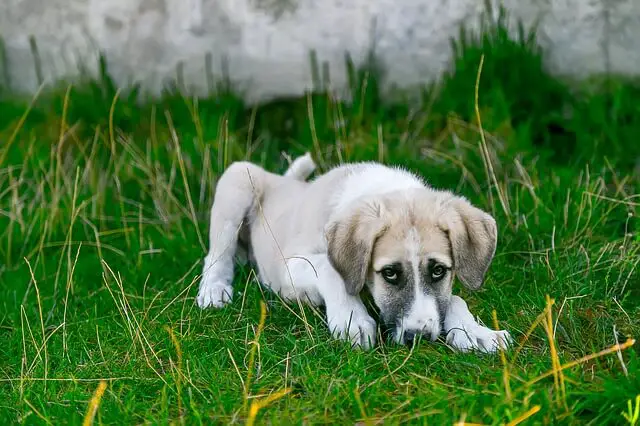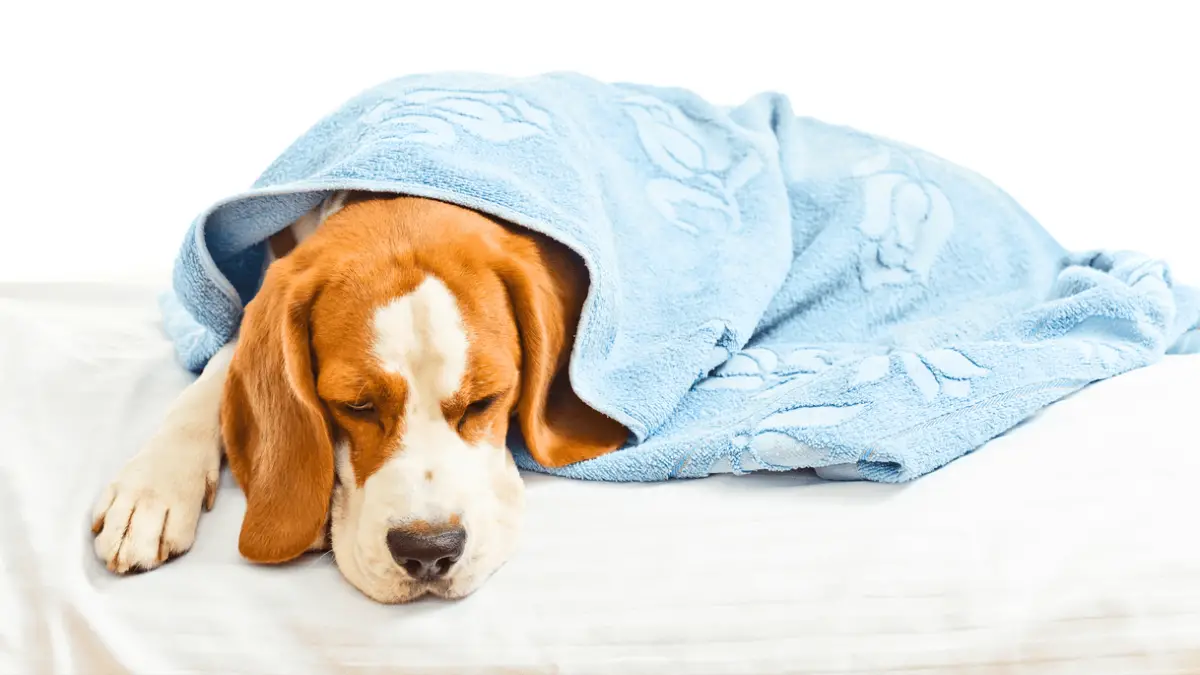Parvo In Dogs: Vaccination, Symptoms & Treatment
10.12.2020.
There aren’t many things that scare dog owners more than parvovirus. Dog breeders twitch when they hear the word “parvo,” and if you are becoming a new dog parent, you should be afraid of this virus too.
If you are getting a puppy soon, there are some things you should know about this disease and how to spot it, but most of all, how to prevent your new puppy from getting it. Here is everything you need to know about the parvo in dogs.
What is parvo in dogs?
Parvo is a disease caused by canine parvovirus, and it usually has a deadly outcome. This is a highly contagious virus, and you should do everything you can to protect your puppy from it, especially while remaining unvaccinated.
Canine parvovirus is a virus that affects bone marrow, lymphopoietic tissues, small intestine and can sometimes disrupt the heart’s proper function. This disgusting virus prefers to attack the dog’s small intestine, destroying cells and messing up the absorption.
How do dogs get parvo?
This is a highly contagious virus, and it can be transmitted directly or indirectly through contact with an infected puppy or dog. Your puppy is in danger of attracting the parvovirus whenever they sniff or lick places or dogs that are infected with this disease. There are two ways of getting infected.
Direct transmission
Direct transmission is when a healthy puppy gets in contact with an affected puppy or a dog. Dogs sniff each other, lick, bite, and play, which is a great way for viruses to be transmitted. This infection is called direct because it directly involves the host of the virus, transmitting it to other, healthy puppies and dogs.
Indirect transmission
Indirect transmission, or infection, happens when a healthy puppy sniffs, licks, or ingests contaminated objects. This often occurs when a healthy puppy shares a bowl or toys with a dog that is infected with parvo. It can also happen when a puppy eats infected feces.
Contagion period
It is important to let your vet know if you hear or notice possible parvo infections, either to your puppy or other puppies you meet. It is hard to notice parvo at its early stage because puppies might not show symptoms right away. Puppies are contagious 4 or 5 days before symptoms and can be contagious up to 10 days after the made full clinical recovery.
Are you wondering why puppies eat feces? You can find that out in this article: Why do dogs eat poop?
Puppies are extremely vulnerable to parvovirus between their sixth week and sixth months of life. Vets say that dogs younger than six weeks inherit their mother’s antibodies, so they have a “first line of defense.” However, that immunity will go away around their sixth week, so you will have to be extra careful during that time.

Parvovirus vaccination
Besides being careful, your puppy should go through the whole prevention process against the canine parvo. Luckily, there are vaccines for this disease, and until your new puppy receives all of them, exercise caution. It is vital that the breeder you are in contact with about buying a puppy lets you know that their breeding dogs, especially the mother, received all parvo vaccinations. New puppies will inherit their mother’s immune system for the first six weeks of their life. After that, your puppy should go for a full vaccination process.
Vaccination schedule
Vaccination is the first thing you should do, and don’t let anyone tell you that vaccinating your puppy is optional or not necessary. Without vaccination, you are unnecessarily endangering and risking your puppy’s life.
The parvo vaccination schedule is important, and your vet will let you know how and when your puppy should receive their parvo vaccinations. It is usually like this;
- First dose - first vaccination is around the 6th week of your puppy’s life
- Second dose - second vaccination should be when your puppy is 8 weeks old
- Third dose - the third dose should be around their 12th week
- Fourth dose - The fourth and final vaccination is around your puppy’s 16th week of life, and this is a dose that should be administered no matter how many vaccinations your puppy received before.
Symptoms of parvo in dogs
Puppies are vulnerable to parvo during a very delicate period of their lives, and early detection might be the best chance you give your puppy to recover from parvovirus. It is crucial that you learn what parvo symptoms can appear and what you should do if you notice them.
It is usually not that hard to notice a puppy suffering from parvo because it clearly looks very sick. Parvo symptoms include;
- Vomiting
- Bloody diarrhea
- Anorexia
- Weight loss
- Weakness
- Depression
- Lethargy
- Fever
- Dehydration
All of these symptoms can indicate different problems, including the parvo, so if you think your puppy looks off or you notice any of these symptoms, you should immediately call your vet. It is better to be safe than sorry.
Puppies can also vomit quite often, so if you are unsure what to think about it, here is an article that could help: Dog Vomiting - Reasons, Symptoms & Diagnose.
Treating a dog with parvovirus
The bad news is there is no cure for parvovirus in puppies. The parvovirus weakens the puppy’s immune system, and often, secondary bacterial infections happen. Your vet will make sure your puppy is on antibiotics that can help prevent or fight the bacterial infection and make sure the puppy is hydrated and on a proper diet.
World Dog Finder team








Share